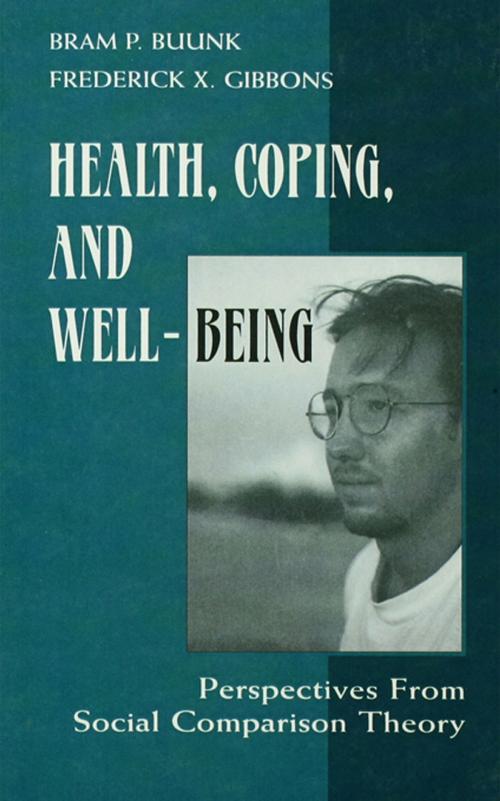Health, Coping, and Well-being
Perspectives From Social Comparison Theory
Nonfiction, Health & Well Being, Psychology| Author: | ISBN: | 9781134793174 | |
| Publisher: | Taylor and Francis | Publication: | May 13, 2013 |
| Imprint: | Psychology Press | Language: | English |
| Author: | |
| ISBN: | 9781134793174 |
| Publisher: | Taylor and Francis |
| Publication: | May 13, 2013 |
| Imprint: | Psychology Press |
| Language: | English |
Over the past decades, the field of health psychology has witnessed a tremendous growth, and social psychologists have contributed substantially to the theoretical foundation of this field. Their research has focused on a wide variety of health-relevant topics such as how individuals decide to respond to threats to their health and well-being, how and why they change their behavior to avoid such threats, and especially, how they adjust to or cope with the risk of threatening disease and with the diseases themselves. As diverse as this literature may be, however, there does appear to be a common theme throughout much of it--the observation that comparison of oneself and one's health status and coping efforts with others is an integral part of the coping process. Consequently, social comparison theory is increasingly becoming recognized as a fruitful framework for illuminating health related issues. A still expanding literature is exploring the role of social comparisons with respect to coping with a wide range of health problems, including cancer, physical decline among the aged, rheumatoid arthritis, AIDS, stress at work and occupational burnout, and eating disorders.
Social comparison theory has augmented knowledge about the ways in which people cope with stressful events, and thus has contributed significantly to it. At a more basic level, research in this applied context has made significant contributions to the development of social comparison theory itself. The present volume presents an overview of the various ways in which social comparison theory has been applied to issues related to health, coping, and well-being, and also points out how these applications have contributed to our insight into the way humans employ social comparison information. Given the attention paid to theoretical and applied issues, this volume will appeal to a wide audience, including social and health psychologists, as well as therapists, physicians, clinicians, medical sociologists, nurses, and those involved in the growing field of nursing research.
Over the past decades, the field of health psychology has witnessed a tremendous growth, and social psychologists have contributed substantially to the theoretical foundation of this field. Their research has focused on a wide variety of health-relevant topics such as how individuals decide to respond to threats to their health and well-being, how and why they change their behavior to avoid such threats, and especially, how they adjust to or cope with the risk of threatening disease and with the diseases themselves. As diverse as this literature may be, however, there does appear to be a common theme throughout much of it--the observation that comparison of oneself and one's health status and coping efforts with others is an integral part of the coping process. Consequently, social comparison theory is increasingly becoming recognized as a fruitful framework for illuminating health related issues. A still expanding literature is exploring the role of social comparisons with respect to coping with a wide range of health problems, including cancer, physical decline among the aged, rheumatoid arthritis, AIDS, stress at work and occupational burnout, and eating disorders.
Social comparison theory has augmented knowledge about the ways in which people cope with stressful events, and thus has contributed significantly to it. At a more basic level, research in this applied context has made significant contributions to the development of social comparison theory itself. The present volume presents an overview of the various ways in which social comparison theory has been applied to issues related to health, coping, and well-being, and also points out how these applications have contributed to our insight into the way humans employ social comparison information. Given the attention paid to theoretical and applied issues, this volume will appeal to a wide audience, including social and health psychologists, as well as therapists, physicians, clinicians, medical sociologists, nurses, and those involved in the growing field of nursing research.















